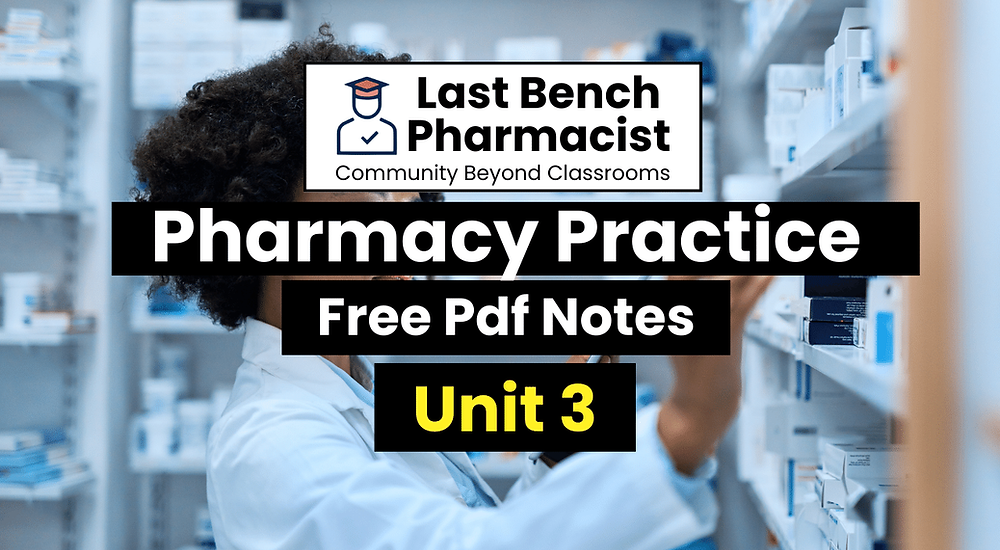



#bpharmnotes #bpharmPharmacypractice #bpharmpdfnotes
B-Pharmers, prepare to become patient advocates and medication experts in B Pharm Pharmacy Practice Unit 3 PDF Notes! We’ll dive into the Pharmacy and Therapeutic Committee (PTC), where you’ll learn how they influence hospital formularies and medication policies. Imagine contributing to decisions about which drugs are used and how they’re prescribed. Buckle up as we explore drug information services, equipping you to be a reliable source of knowledge for patients and healthcare professionals. We’ll teach you to navigate drug databases and provide accurate, evidence-based information. But it’s not just about facts; we’ll hone your patient counseling skills, empowering you to clearly explain medications, answer questions, and address concerns. Feeling like an educator? We’ll explore your role in hospital training programs and even delve into community health education, helping others make informed decisions about their health. Remember, clear communication is key, so we’ll also sharpen your communication skills for interacting with both doctors and patients. By the end of this unit, you’ll be a well-rounded pharmacy professional, ready to advocate for safe and effective medication use in hospitals and beyond!
a) Pharmacy and therapeutic committee
Organization, functions, Policies of the pharmacy and therapeutic committee in including drugs into formulary, inpatient and outpatient prescription, automatic stop order, and emergency drug list preparation.
b) Drug information services
Drug and Poison information centre, Sources of drug information, Computerised services, and storage and retrieval of information.
c) Patient counseling
Definition of patient counseling; steps involved in patient counseling, and Special cases that require the pharmacist
d) Education and training program in the hospital
Role of pharmacist in the education and training program, Internal and external training program, Services to the nursing homes/clinics, Code of ethics for community pharmacy, and Role of pharmacist in the interdepartmental communication and community health education.
e) Prescribed medication order and communication skills
Prescribed medication order- interpretation and legal requirements, and Communication skills- communication with prescribers and patients.